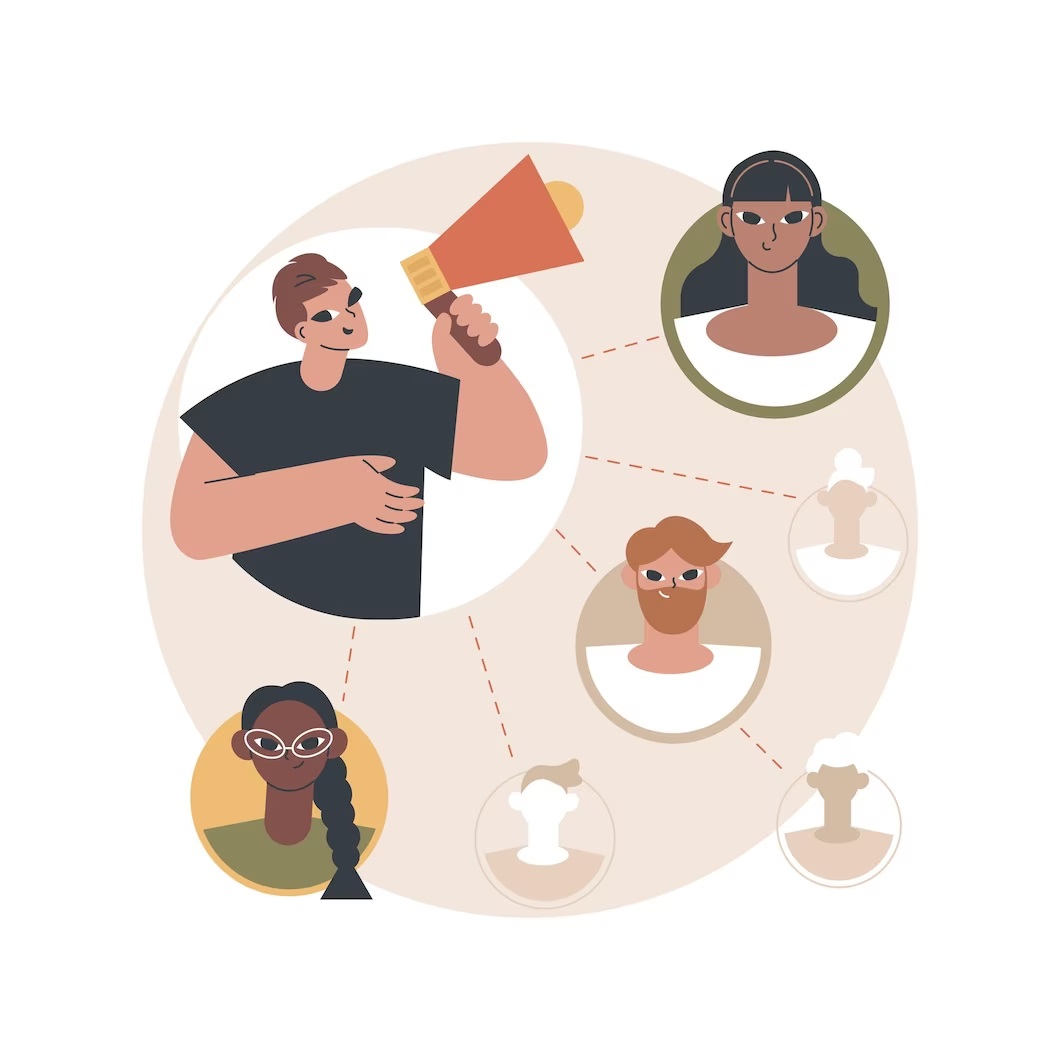The Connection Between Assertiveness and Confidence
The Link between Assertiveness and Confidence
Assertiveness and confidence are two interrelated attributes that determine how a person presents themselves to others. While confidence refers to an individual's belief in their abilities and worth, assertiveness refers to expressing oneself in a way that is clear, firm, and respectful. In fact, it can be said that assertiveness is an important aspect of confidence, as it enables a person to communicate their thoughts and needs in a way that inspires respect and understanding. Assertive people are those who can stand up for themselves and their beliefs without resorting to aggressive or passive behavior.
Developing assertiveness requires a conscious effort on the part of an individual, as it involves challenging one's own beliefs and attitudes. It also involves setting clear boundaries that are communicated to others in a respectful way. While being assertive can be difficult for those who are naturally shy or introverted, it is a skill that can be learned with practice. In fact, assertiveness training is a common technique used by therapists to help clients improve their communication and interpersonal skills.
Confidence and assertiveness are important attributes not just for personal growth, but also for career success. People who are confident and assertive are more likely to get their voices heard in the workplace, which can lead to better job opportunities and increased job satisfaction. Furthermore, assertive communication can help foster positive relationships with colleagues and superiors, leading to a more harmonious work environment. Ultimately, the link between confidence and assertiveness is a powerful one, and those who possess these attributes are poised to achieve greater success in all areas of life.
What is Assertiveness
Assertiveness is a communication style that involves expressing one's own needs, wants, and opinions in a clear and direct manner, while also respecting the needs, wants, and opinions of others. When we are assertive, we are able to stand up for ourselves, make our own decisions, and take responsibility for our own lives. However, being assertive does not mean being aggressive or confrontational. Rather, it is about finding a balance between our own needs and the needs of those around us.
Assertiveness is an important skill to have in both personal and professional relationships. In personal relationships, being assertive can help us to communicate more effectively with our romantic partners, family members, and friends. By expressing our feelings and needs clearly and honestly, we can avoid misunderstandings and build stronger, more meaningful relationships. In professional relationships, being assertive can help us to achieve our goals and advance our careers. We can negotiate for better salaries, promotions, and working conditions, and we can assert our professional opinions in a respectful and effective manner.
There are many benefits to being assertive. When we are assertive, we are able to express our own wants, needs, and opinions without fear or shame. This can help us to build self-esteem and confidence, and to feel more positive about ourselves and our lives. In addition, assertiveness can help us to build stronger, more meaningful relationships, as we are better able to communicate with others in a clear, honest, and respectful way. Finally, being assertive can help us to achieve our goals and live the lives that we want, rather than simply accepting whatever comes our way.
Self-Assertion
Self-assertion is an essential tool for anyone looking to assert themselves in their personal, professional or social lives. It involves confidently expressing your opinions, beliefs, and needs in a respectful and impactful way. Without self-assertion, individuals often fall into the trap of people-pleasing, becoming passive and compromising their own needs to please others. Therefore, self-assertion is vital to maintaining healthy relationships and creating boundaries that are essential to our mental health and wellbeing.
Self-assertion is not about being aggressive or confrontational. It is an essential skill that requires tact, diplomacy, and empathy. Effective self-assertion requires understanding the needs and feelings of others, while also being true to yourself. When approached in the right way, self-assertion can help build stronger relationships, increase mutual respect, and create a more positive and harmonious environment.
Effective self-assertion is not always easy, and it requires practice and persistence. Developing self-assertion skills can be a challenging process, particularly for those who may have grown up in an environment where their needs and opinions were not valued. However, with practice, anyone can learn the skills needed to confidently and effectively express themselves. Whether at home, work, or in social situations, self-assertion is an important life skill that can bring significant benefits to all areas of our lives.
Exploring Confidence Levels
Confidence levels are an essential aspect of statistics used in quantifying the degree of uncertainty related to a statistical inference. One of the primary elements of a statistical study is the calculation and interpretation of confidence levels. A confidence level of a statistical inference refers to the probability of an event occurring. For instance, if the confidence level of a study is 95%, it means that if the study was repeated 100 times, 95 of those times, the result would be within the margin of error.
Confidence levels are crucial in various fields, such as medicine, finance, engineering, and social sciences. They help researchers to make inferences and draw conclusions about the whole population by analyzing a sample subset. Confidence levels enable researchers to state the probability that their inferences are correct when base the results on a random sample. For instance, in medicine, researchers often use 95% confidence levels in clinical trials to make predictions regarding the effect of new drugs on the population. If the confidence level is higher, it provides more reliable and trustworthy results, but it can also increase the sample size and study's duration.
The confidence level significantly impacts a study's reliability, and it is crucial to understand its relationship with the sample size and margin of error. A higher confidence level lowers the risk of making a type I error, commonly referred to as a false-positive, but can lead to an increase in false negatives or type II errors. The margin of error, on the other hand, increases with smaller sample sizes, decreases when the sample sizes increase, and reduces with higher confidence levels. It is vital to strike the right balance between confidence levels, sample sizes, and margin of error to get reliable results that can face the test of further scrutiny.
The Benefits of Assertiveness
Assertiveness is a beneficial life skill that can improve personal relationships, professional success, and overall well-being. Contrary to popular belief, assertiveness is not about being aggressive or confrontational. It is the ability to express one's thoughts, feelings, and needs in a reasonable, confident, and respectful manner. Assertiveness can lead to more effective communication, more meaningful connections, and a stronger sense of self-worth.
Being assertive can help individuals establish clear boundaries, set priorities, and make informed decisions. It can also reduce stress, anxiety, and feelings of helplessness. By using assertive communication, individuals can achieve their goals without sacrificing their values or compromising their beliefs. Assertiveness is essential for healthy relationships, as it allows individuals to express their emotions and opinions honestly and directly. It can also prevent misunderstandings or conflicts, and foster mutual respect and trust.
Learning to be more assertive requires practice and patience. Individuals can benefit from developing assertiveness through self-reflection, mindfulness, and communication training. It also involves recognizing and challenging negative beliefs and self-talk that may impede assertive behavior. By being assertive, individuals can enhance their self-esteem, build resilience, and promote their well-being. The benefits of assertiveness extend beyond personal growth and can positively impact all areas of life.
The Dangers of Unassertiveness
Unassertiveness, the reluctance to express one's thoughts, feelings, or needs in a clear and direct way, can be a significant danger to one's emotional and mental well-being. When individuals fail to assert themselves, they may feel powerless or invisible, leading to feelings of depression and anxiety. Additionally, unassertiveness can lead to unhealthy relationships and difficulty setting boundaries, which may further jeopardize one's emotional health.
Furthermore, unassertiveness can have negative consequences in one's personal and professional life. In personal relationships, individuals who struggle with being assertive may find themselves trapped in toxic or codependent dynamics, where they sacrifice their own needs or desires for the sake of others. In a professional setting, an inability to assert oneself may lead to missed opportunities or being taken advantage of by colleagues or superiors.
Fortunately, assertiveness is a skill that can be learned and developed through practice. Learning to assert oneself involves acknowledging one's own needs and desires, learning to communicate effectively, and setting appropriate boundaries. By becoming more assertive, individuals can improve their relationships, boost their self-esteem, and take control of their own lives. In the end, the dangers of unassertiveness can be overcome by embracing the power of assertiveness.
The Influences of Assertiveness on Confidence
Assertiveness and confidence have a close relationship, and one can affect the other. Assertiveness is the ability to express yourself effectively and stand up for your rights, beliefs, and values. When you are assertive, you command respect and get your point across without being aggressive or passive. On the other hand, confidence is the belief in yourself and your abilities. It is the feeling of self-assurance that comes from knowing your worth and being comfortable with whom you are. When you are confident, you can take risks, face challenges, and pursue your goals without fear or hesitation.
Assertiveness can increase confidence in various ways. It can help you overcome the fear of rejection and the need for approval, which are common barriers to confidence. When you express yourself assertively, you give yourself permission to be authentic and honest, even if it means disagreeing with others or saying no. This can help you develop a sense of autonomy and self-respect. Assertiveness can also improve your communication skills, which are critical for building relationships, establishing boundaries, and resolving conflicts. When you communicate effectively, you not only convey your message clearly, but you also listen actively and respond appropriately. This can enhance your social skills and emotional intelligence, which are foundation pillars of confidence.
However, assertiveness can also undermine confidence if it is used inappropriately or excessively. Aggressive behavior, such as shouting, interrupting, or insulting others, can damage relationships and erode trust. Passive behavior, such as avoiding confrontation, sugarcoating feedback, or giving in to others' demands, can lead to resentment, self-doubt, and a sense of powerlessness. Both extreme approaches can create a negative perception of oneself and others and reduce the likelihood of achieving mutual goals. Therefore, assertiveness should be balanced and adapted to the situation and the person. It should aim to assert your rights and opinions while respecting others' rights and opinions. In this way, assertiveness can be a positive force that enhances confidence and self-esteem while building healthy relationships and achieving mutual benefits.
Ways to Increase Assertiveness
Assertiveness is a crucial skill that plays a vital role in all aspects of life. Being assertive means standing up for your rights and expressing your opinions, needs, and feelings in a respectful and confident manner. It helps in building healthy relationships, enhancing self-esteem, improving communication skills, and reducing stress and conflicts. However, some people may find it difficult to be assertive due to fear, anxiety, low self-esteem, or a lack of confidence. Fortunately, there are several ways to increase assertiveness.
One way to increase assertiveness is by using “I” statements instead of “you” statements. “I” statements are more effective than “you” statements as they express your feelings and opinions without blaming or criticizing the other person. For example, instead of saying “you always interrupt me” say “I feel frustrated when I'm interrupted.” Another way to increase assertiveness is by setting clear boundaries. This means knowing and communicating what you will and will not tolerate in situations and relationships. It helps in building self-respect and avoiding being taken advantage of.
Finally, practicing active listening is another way to increase assertiveness. Active listening means paying full attention to the other person and understanding their perspective before responding. It shows respect and creates a more conducive environment for expressing your own opinion. Additionally, learning to say “no” when necessary is also essential for assertiveness. Often, people feel obligated to say “yes” to please others or avoid conflict, but being able to decline politely and respectfully is an important aspect of assertiveness. With practice and patience, anyone can develop assertiveness and reap its numerous benefits.
How Confidence Affects Assertiveness
Confidence is a vital aspect of assertiveness. When a person is self-assured and self-confident, they are more likely to assert their opinions and take charge of situations. In contrast, somebody who lacks confidence may find themselves struggling to voice their thoughts, and may struggle to make decisions or assert their beliefs. This is because those who lack confidence often fear judgement and criticism, and may doubt their own abilities and worth.
Confidence can be developed over time, and this can improve assertiveness. When an individual feels more confident, they are more likely to express themselves and take a stand. Confidence can be developed through practice, exposure to new situations, and seeking feedback from others. By learning to accept constructive criticism and believing in oneself, an individual can gradually develop their confidence and assertiveness.
Assertiveness relies on communication skills and the ability to speak up when necessary. Confidence is key in demonstrating this ability, as it is often the lack of self-assuredness that holds individuals back from voicing their opinions in public. By believing in oneself, an individual can learn to communicate their thoughts clearly and directly. This can lead to a sense of empowerment, where individuals feel more capable and confident in their abilities. Ultimately, developing confidence can have a significant impact on how a person asserts themselves, and can lead to a more fulfilling and satisfying life.
Building Confidence and Assertiveness Together
Building confidence and assertiveness together can greatly benefit individuals in their personal and professional lives. Confidence allows individuals to believe in their abilities and take risks, while assertiveness enables them to communicate effectively and stand up for their rights. These two traits work hand in hand to create a powerful and effective personality. When individuals are confident and assertive, they are able to achieve their goals and navigate through challenging situations with ease.
One way to build confidence and assertiveness is through self-reflection and positive self-talk. Individuals should take time to reflect on their strengths and accomplishments to boost their confidence. Moreover, they should replace negative self-talk with positive affirmations, such as reminding themselves of their value and worth. Assertiveness, on the other hand, can be developed through practice. Individuals can start by speaking up for themselves in small situations and gradually work their way up to more challenging scenarios. With practice, assertiveness becomes a natural and effective communication style.
In addition to personal practices, there are also professional resources available that can help individuals build confidence and assertiveness. Workshops and coaching sessions can provide individuals with the tools and techniques necessary to overcome their fears and communicate effectively in various situations. Additionally, networking opportunities and mentorship programs can introduce individuals to new experiences and allow them to learn from others who have already achieved success. By taking advantage of these resources, individuals can build the confidence and assertiveness needed to succeed in all areas of their lives.
Tips to Maintain An Assertive Attitude
Maintaining an assertive attitude can help you effectively communicate your needs and boundaries without sacrificing your personal values or the respect of others. One important tip is to practice active listening. This means focusing on what the other person is saying rather than formulating your response or interrupting them. When you truly listen to others, you can respond in a thoughtful and measured way that is more likely to be respected and heard.
Another key tip is to use “I” statements when expressing yourself. These statements begin with the word “I” and focus on your thoughts, feelings, and experiences rather than blaming or attacking others. For instance, instead of saying “you’re always interrupting me,” you might say “I feel unheard when I am continually interrupted.” This type of language keeps the conversation focused on you and your feelings while minimizing defensiveness and potential conflict.
Finally, remember to practice self-care and set appropriate boundaries. Assertiveness means standing up for yourself, but it also means knowing your limits and when to say no. Take time to reflect on your values, priorities, and goals and make sure your actions align with them. When you have a strong sense of self and respect for your own needs, it becomes easier to communicate confidently and effectively with others.
Building Self-Esteem
Building self-esteem is essential for leading a happy and fulfilling life. When a person has healthy self-esteem, they are more confident in their abilities, have a positive outlook on life, and are better equipped to deal with challenges. On the other hand, low self-esteem can lead to feelings of insecurity, self-doubt, and depression. Fortunately, self-esteem is not something that is set in stone. People can take steps to improve their self-esteem and lead happier lives.
One way to build self-esteem is to set achievable goals and work towards them. Setting goals helps people feel more in control of their lives and gives them a sense of purpose. Achieving these goals also provides a sense of accomplishment and boosts self-confidence. It's important to set realistic goals, though, as setting unattainable goals can actually lower self-esteem when they are not achieved. By setting small goals and achieving them, people can build a foundation of success that can lead to greater confidence and self-esteem.
Another way to build self-esteem is to practice self-compassion. Many people are their own harshest critics, and this negative self-talk can take a toll on self-esteem. Practicing self-compassion means treating oneself with the same kindness, concern, and understanding that one would offer to a good friend. By being kinder to oneself, people can change their self-image and build a more positive view of themselves. This can lead to greater self-confidence and an improved sense of self-worth.
Conclusion
The conclusion of an article is one of the most crucial parts of any piece of writing. It is the final statement provided to the reader after they have read your entire article. As such, it is important to ensure that your conclusion is strong and effective. A good conclusion should summarize your key points, restate your thesis statement in a fresh way, and leave the reader with something to think about. Your conclusion is where you get to make your final argument and convince the reader why your points matter. In the end, a strong conclusion can be the difference between a great article and a forgettable one.
When it comes to writing an effective conclusion, there are a few key things to keep in mind. For starters, you want to avoid simply restating your introduction. This can leave your reader feeling unsatisfied and may not give them any real closure. Instead, try to bring your argument full circle by tying your points together and providing a clear statement about why they matter. Additionally, you should avoid introducing any new information or arguments in your conclusion. This can confuse the reader and detract from the points you have already made. Instead, focus on summarizing your key points and leaving the reader with a final thought that will stick with them long after they have finished reading your article.
Overall, a strong conclusion is crucial to the success of any article. It is your final chance to leave a lasting impression on your reader and to reinforce the thesis statement you have been building throughout your work. By summarizing your key points, avoiding introducing new information or arguments, and leaving your reader with something to think about, you can ensure that your conclusion is impactful and effective. Whether you are writing a research paper, a blog post, or a news article, taking the time to craft a strong conclusion will help ensure that your work resonates with your readers and stands the test of time.



